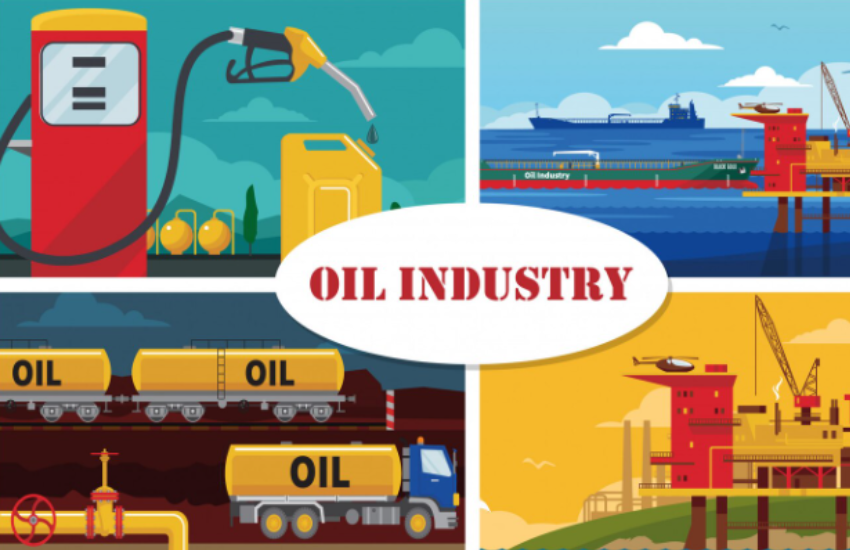The United Kingdom’s domestic oil policy and regulation framework stands at the crossroads of economic necessity, environmental responsibility, and energy security. Over the past few decades, Britain has transitioned from being a leading oil producer in Europe to navigating the complex realities of declining North Sea reserves, shifting global energy markets, and pressing climate commitments. As the country pursues its ambitious net-zero goals, understanding how domestic oil policy operates—and how it continues to evolve—is essential for citizens, businesses, and policymakers alike.
The Legacy of the UK’s Oil Industry
The UK’s relationship with oil dates back to the late 1960s, when large offshore reserves were discovered beneath the North Sea. By the 1980s, oil had become a cornerstone of the British economy, helping the country achieve greater energy independence and creating thousands of jobs in regions such as Aberdeen, often dubbed the “Oil Capital of Europe.”
For decades, revenues from oil production contributed significantly to the national treasury, fueling growth and funding public services. However, by the early 2000s, production began to decline as mature fields aged and new discoveries became less frequent. This shift marked the beginning of a complex balancing act between maintaining domestic supply, ensuring fair taxation, and transitioning toward cleaner sources of energy.
Key Institutions Governing UK Oil Policy
Domestic oil regulation in the United Kingdom operates through a coordinated network of government bodies and agencies. The key players include:
1. The North Sea Transition Authority (NSTA)
Formerly known as the Oil and Gas Authority (OGA), the NSTA oversees licensing, exploration, and production within UK territorial waters. Its core mandate is to regulate the industry responsibly, ensuring that extraction aligns with environmental standards and the UK’s broader net-zero objectives.
2. The Department for Energy Security and Net Zero (DESNZ)
This department sets overarching energy policy, balancing the need for secure oil supplies with the country’s decarbonisation strategy. It also liaises with industry stakeholders, regional authorities, and international partners to ensure the UK’s energy framework remains robust and forward-looking.
3. The Environment Agency (EA) and Scottish Environmental Protection Agency (SEPA)
These bodies ensure that oil extraction, transportation, and refining comply with environmental protection laws. They monitor emissions, enforce spill prevention measures, and promote sustainability within the energy sector.
Licensing and Exploration: Controlled Access to Resources
The UK operates a licensing system that allows energy companies to explore and extract hydrocarbons under government supervision. The NSTA issues production licenses through regular bidding rounds, ensuring fair competition and adherence to strict environmental criteria.
Each license typically involves multiple stages—from exploration and appraisal to development and eventual decommissioning. Companies must demonstrate not only technical capability but also environmental and financial responsibility. The process ensures that exploration aligns with the UK’s climate goals, including the 2050 net-zero target.
Fiscal Framework: Taxation and Revenue Management
The UK’s oil taxation system is designed to strike a balance between encouraging investment and ensuring that the nation benefits fairly from its natural resources. The primary taxes applied to oil companies include:
-
Ring Fence Corporation Tax (RFCT): A 30% tax applied to profits from oil and gas extraction.
-
Supplementary Charge (SC): An additional 10% levy on those profits.
-
Energy Profits Levy (EPL): Introduced in 2022 as a temporary windfall tax, the EPL captures extraordinary profits resulting from high global energy prices.
These taxes ensure that the public receives a fair return while maintaining an environment attractive enough for continued investment. However, fluctuating oil prices and changing fiscal rules often create tension between industry and policymakers—especially when balancing short-term economic gains against long-term sustainability goals.
Environmental Regulation and Sustainability Goals
Perhaps the most defining characteristic of modern UK oil policy is its alignment with environmental objectives. As a signatory to the Paris Agreement, the UK has pledged to achieve net-zero carbon emissions by 2050, a goal that requires significant shifts in how fossil fuels are produced and consumed.
1. Carbon Management
Oil operators are now required to implement carbon-reduction measures, such as electrifying offshore platforms, investing in carbon capture and storage (CCS), and offsetting emissions through renewable energy projects.
2. Decommissioning Standards
As older fields reach the end of their productive lives, companies must safely decommission platforms, pipelines, and wells. The NSTA enforces strict guidelines to ensure that decommissioning is both environmentally responsible and economically efficient. The process itself has become a new growth area, creating opportunities in engineering, recycling, and environmental restoration.
3. Transition to Renewables
UK energy policy increasingly encourages oil companies to diversify into renewables. Many traditional oil firms are investing heavily in offshore wind, hydrogen, and carbon storage initiatives. This “energy transition” reflects the government’s push to maintain industrial expertise while steering the sector toward a cleaner future.
Balancing Energy Security and Climate Commitments
One of the most complex challenges for the UK government is balancing energy security with environmental integrity. The global energy crisis of 2022–2023 underscored the importance of domestic production, as reliance on foreign imports left many European countries vulnerable to price volatility and supply disruptions.
For the UK, maintaining a baseline of domestic oil output offers several strategic benefits:
-
Reduces exposure to global market fluctuations
-
Supports thousands of skilled jobs across the country
-
Generates tax revenues that can fund renewable infrastructure
However, policymakers face mounting pressure to phase out fossil fuels entirely. The debate often centres on how fast the transition should happen. While environmental groups advocate for an immediate halt to new oil projects, industry voices argue for a pragmatic approach that ensures energy affordability and reliability during the transition period.
The Role of Technology and Innovation
Innovation plays a pivotal role in modernising the UK’s oil sector. Emerging technologies are helping reduce emissions, increase efficiency, and extend the life of mature fields. Some notable advancements include:
-
Digital Twin Systems: Real-time data monitoring improves safety and operational performance offshore.
-
Subsea Robotics: Autonomous underwater vehicles assist in maintenance and environmental inspections.
-
Carbon Capture and Storage (CCS): Projects such as Acorn in Scotland aim to capture CO₂ from industrial sources and store it beneath the North Sea, turning old oil reservoirs into carbon sinks.
By integrating digitalisation and sustainability, the UK is setting an example of how a mature oil industry can adapt in an era of decarbonisation.
Future Outlook: A Managed Transition
Looking ahead, the UK’s domestic oil policy is expected to continue evolving under the banner of “managed transition.” This means that while fossil fuels will gradually decline in the national energy mix, the transition will be planned, predictable, and economically responsible.
Future priorities are likely to include:
-
Strengthening partnerships between government, academia, and industry.
-
Expanding investment in low-carbon technologies and hydrogen production.
-
Encouraging re-skilling of the oil workforce toward renewable sectors.
-
Enhancing carbon capture and offshore storage infrastructure.
Rather than abruptly ending oil production, the UK’s approach focuses on repurposing existing assets and expertise to accelerate the shift toward cleaner energy systems.
Conclusion
The United Kingdom’s domestic oil policy and regulation framework is more than just a set of rules—it is a reflection of the country’s economic heritage, environmental ambitions, and strategic foresight. From the early boom years of North Sea exploration to the present era of climate consciousness, the UK has demonstrated resilience and adaptability in managing one of its most critical industries.




Leave a Reply